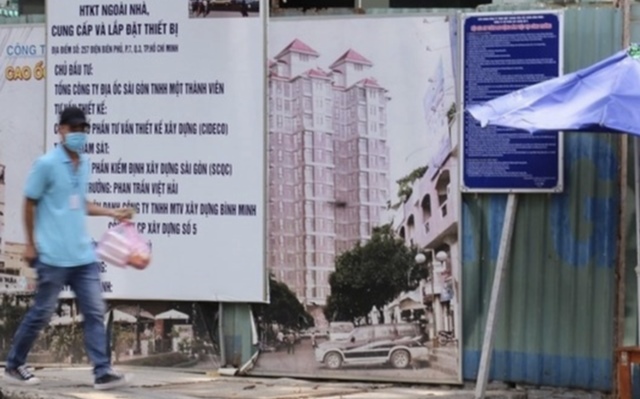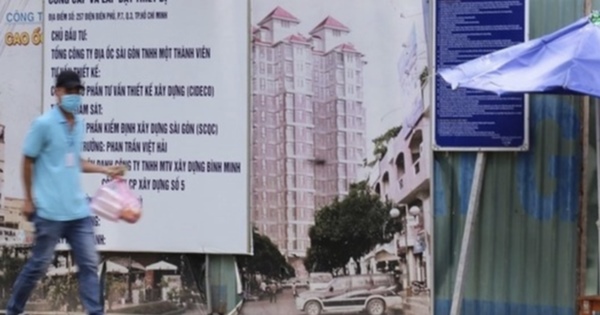On May 6, Ho Chi Minh City Police completed their supplementary investigation report on a case involving Saigon Real Estate Corporation (Resco). The investigation revealed that Resco, a wholly state-owned enterprise under the management of the Ho Chi Minh City People’s Committee, had engaged in improper land use and caused financial losses to the state.
Mr. Nguyen Tin Trung, former Chairman of Resco’s Members’ Council, Mr. Nguyen Phuoc Ngoc, former General Director and Chairman of the Members’ Council, and six other individuals were recommended for prosecution on charges of “Violation of regulations on the management and use of state assets, causing waste and loss.”
Earlier, in early January 2024, the Ho Chi Minh City Police had completed their initial investigation and transferred the case file to the municipal People’s Procuracy. However, the Procuracy returned the case and requested further investigation into several important issues.

One of Resco’s projects in District 3, Ho Chi Minh City |
Resco, with its 100% state capital, has been involved in the development of numerous prime real estate projects in the city, including office buildings and commercial residential areas. In 2010, the company was entrusted by the Ho Chi Minh City People’s Committee to implement the Rach U Cay project, which involved land clearance and resettlement. As part of this project, Resco was allowed to change the purpose of 15 land plots and use them to offset their investment in the first phase, instead of contributing them to the city’s budget.
In early 2013, the Ho Chi Minh City People’s Committee approved Resco’s proposal to transfer the land use rights of these plots to its member units as a way to recoup their investment in the first phase of the Rach U Cay project.
However, instead of developing the land in accordance with the approved plans, Resco proceeded to sell the plots, resulting in significant losses for the state. Three of these plots, located at 299/18 Ly Thuong Kiet Street, Binh Dang commercial center, and 682 Hong Bang Street (in District 11), were particularly noteworthy.
The land plot at 299/18 Ly Thuong Kiet Street and the commercial center in Binh Dang were established as state-owned assets by the Ho Chi Minh City People’s Committee. The Committee then approved Resco’s request to change the land use purpose of these plots, allowing them to be used for investment, development, and commercial exploitation according to the approved plans.
Resco, however, failed to follow these directives. They sold the plot at 299/18 Ly Thuong Kiet Street to Real Estate Joint Stock Company No. 7, in which Resco held a 20% stake, for over VND 38 billion. Similarly, they sold the plot at 682 Hong Bang Street to Nam Viet Company, in which they also held a 20% stake, for over VND 22 billion.
The commercial center in Binh Dang was also sold without a proper auction for VND 90.9 billion, contrary to the directives of the Ho Chi Minh City People’s Committee. These transactions resulted in a loss of VND 3.7 billion for the two plots on Ly Thuong Kiet and Hong Bang streets and a staggering VND 41.4 billion for the commercial center in Binh Dang.
Following these transactions, the new owners of the plots were issued land-use certificates, and the plots were subsequently sold to individuals, removing them from state control.
PHAM DUNG













